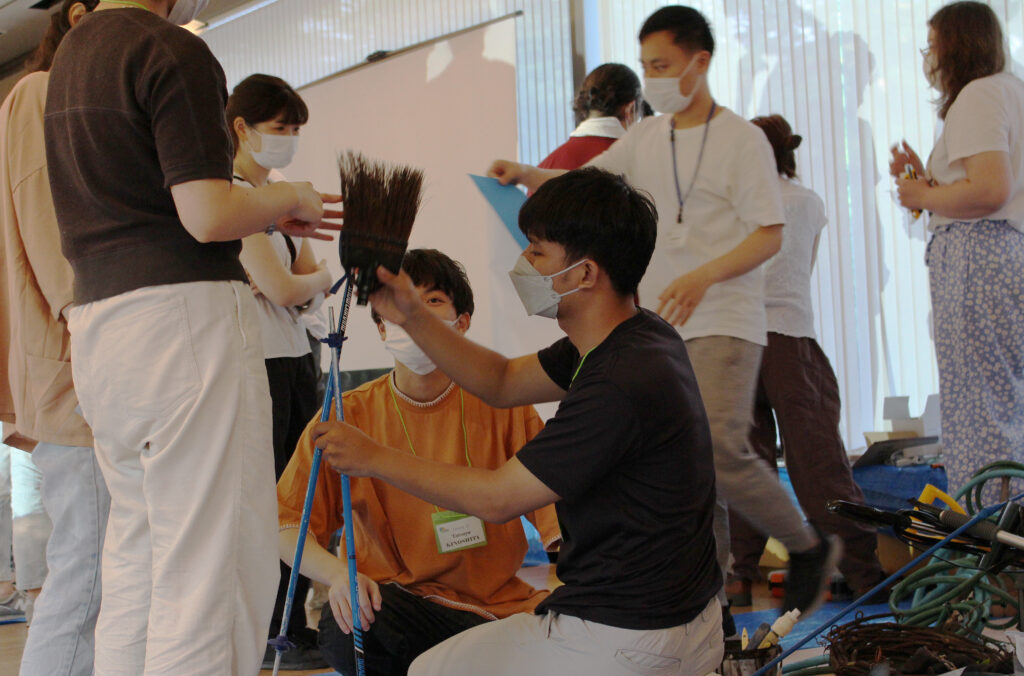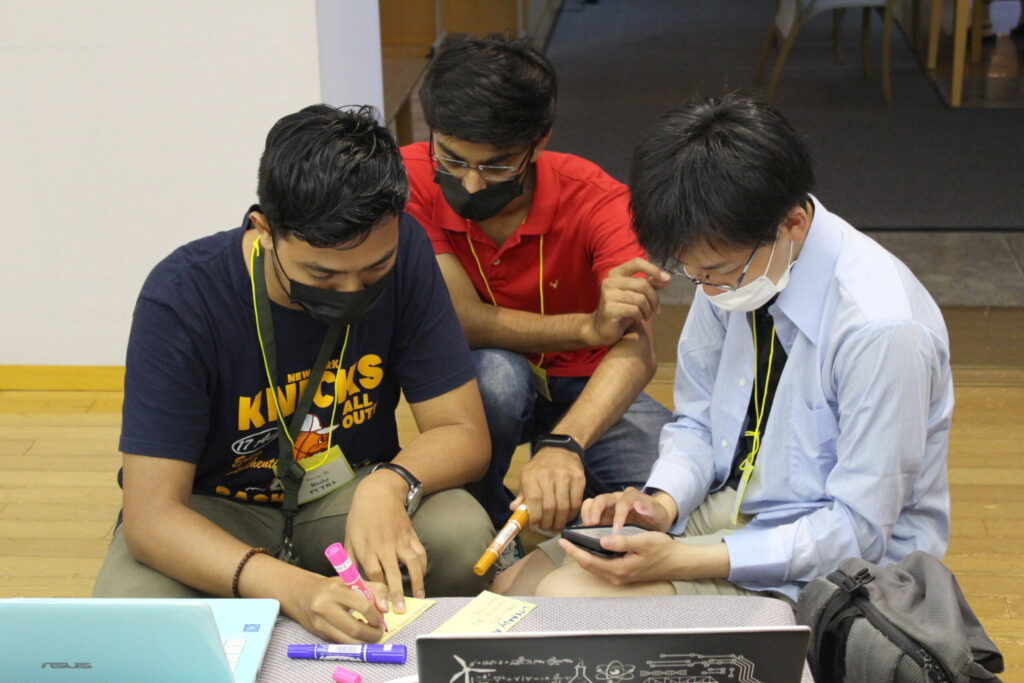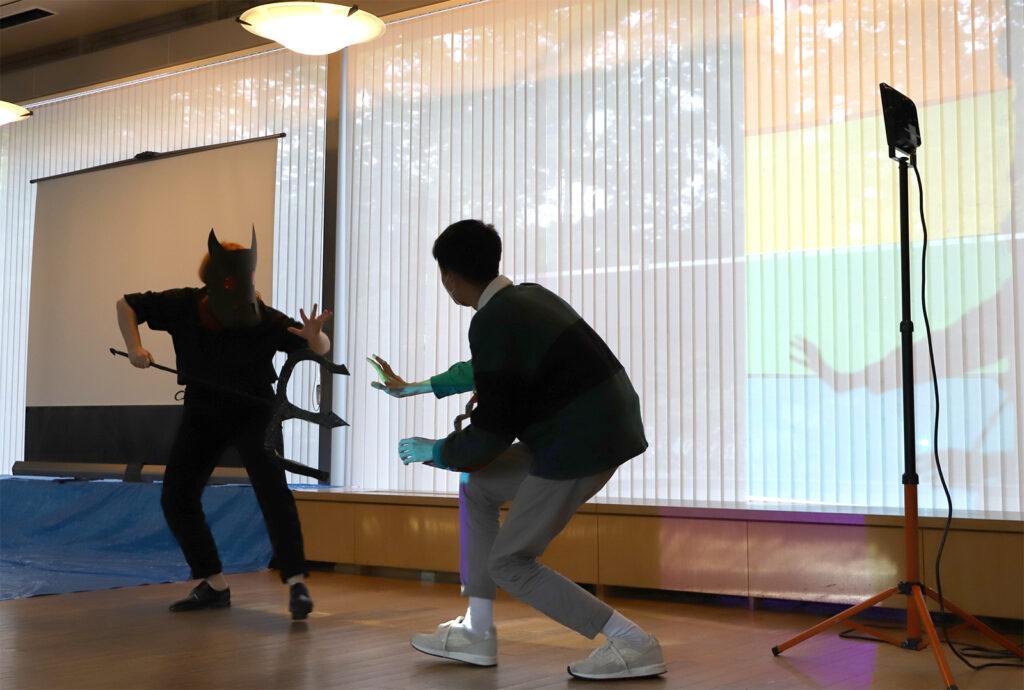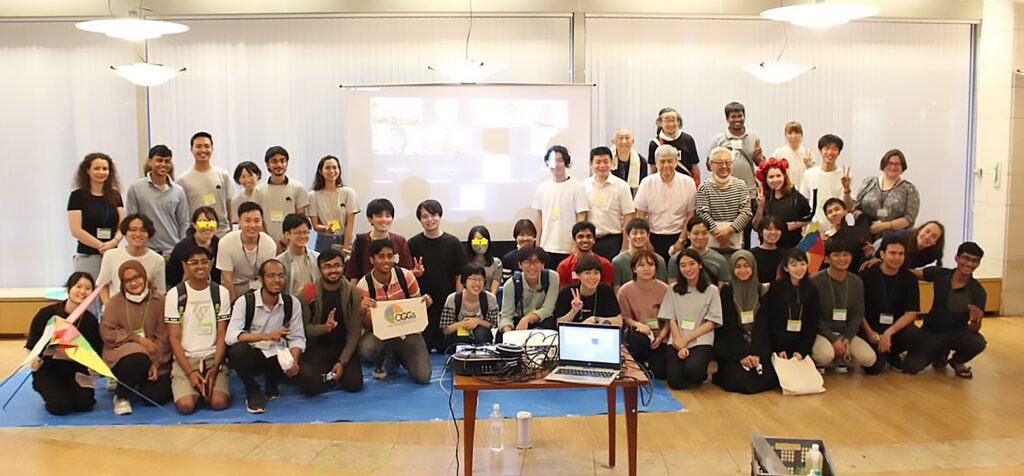HSI Report: SDGs Seminar — International Co-learning PBL for Problem Solving
University News | July 28, 2022
In this highly complex and diverse international society, the ability to understand different perspectives, identify common goals, and collaborate beyond backgrounds is much needed. The HSI course “SDGs Seminar: International Co-learning PBL for Problem Solving” took place from July 4th to 8th, 2022, to give students a unique opportunity to acquire such skills through Problem Based Learning (PBL). Forty-three students from ten countries participated in this course onsite or online.
“The purpose of this course is to let you interact with people from diverse backgrounds to create one thing together,” said Professor Hirofumi Kato, the course organizer, at the beginning of the event. The program is also part of the newly established educational program, “One Program for Global Goals”, or OGGs. The OGGs was launched in April 2022 by merging three previously existing courses called PARE, RJE3, and STSI, each of which was a joint program with universities in Thailand and Indonesia, Russia, and India, respectively. “The OGGs has become a multinational program, and this HSI course is our first attempt to blend students from the three programs together,” said Sachiko Kato, an OGGs coordinator. The course was also joined by non-OGGs students from Taiwan, the Philippines, China, Cambodia, Thailand, Bangladesh, and Japan.
The participants, divided into 9 groups, first selected an SDGs-related topic to work on, such as diversity, energy and resources, or equality in education. By going through rounds of discussions, they exchanged their thoughts on the topic and situation in their home countries, identified common issues, and devised ideas for solutions. They were asked to present their ideas on the last day in the form of a presentation or theatrical performance, which was a unique feature of the program.
Noriyuki Sawa, a renowned puppeteer and theatrical producer who was the guest instructor of the course, introduced the basic movements in puppetry and the importance of teamwork between puppeteers. “Explanation and expression are two different things. If you explain something and say, ‘Let’s save resources for the future,’ your audience may understand it, but they don’t necessarily feel it. Without feeling it, people won’t take action,” said Sawa, emphasizing the importance of expression in conveying a message.
On the final day, five groups gave presentations addressing, for example, how to protect cultural diversity, build energy resilience, and manage increasing waste. Four other groups conducted theatrical performances themed on diversity in innovation, waste control, depression, and environmental protection.
One of the participants from Taiwan said, “I never imagined that I would perform puppetry in this course, but it has become a special memory! Even though our group members had never met before, we soon became friends, and I feel a sense of belonging in a group when making puppetry. I think this experience will help me enhance my communication skills when working together with others in the future.”
Another participant, Takayuki Hayashikawa, a graduate student studying civil engineering, said, “It was quite challenging, yet enjoyable, to work in a multinational team while communicating in English. I tried my best to express myself and to understand others. The SDGs had been somewhat distant, but through the active discussion, this course changed my attitude towards SDGs; I came to realize that sustainability is a pressing issue.”
To learn more about Hokkaido Summer Institute, visit their website:
https://hokkaidosummerinstitute.oia.hokudai.ac.jp/
Written by Naoki Namba




